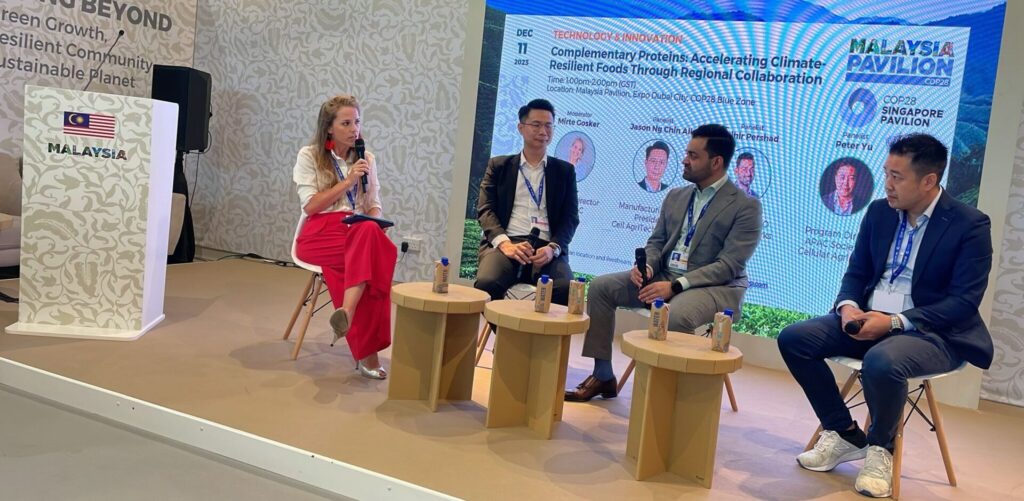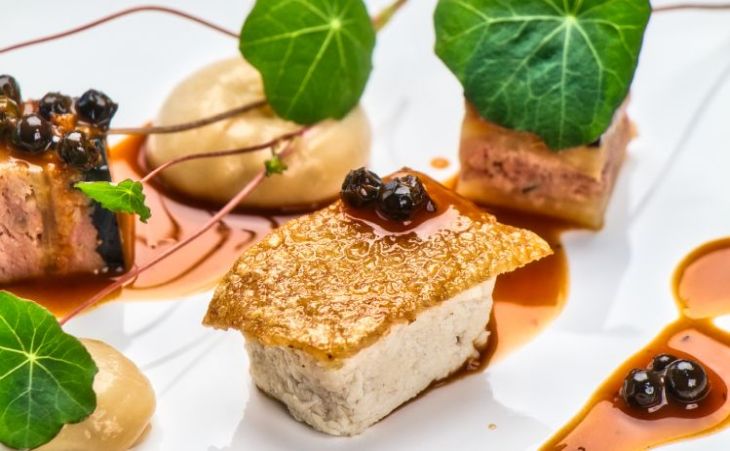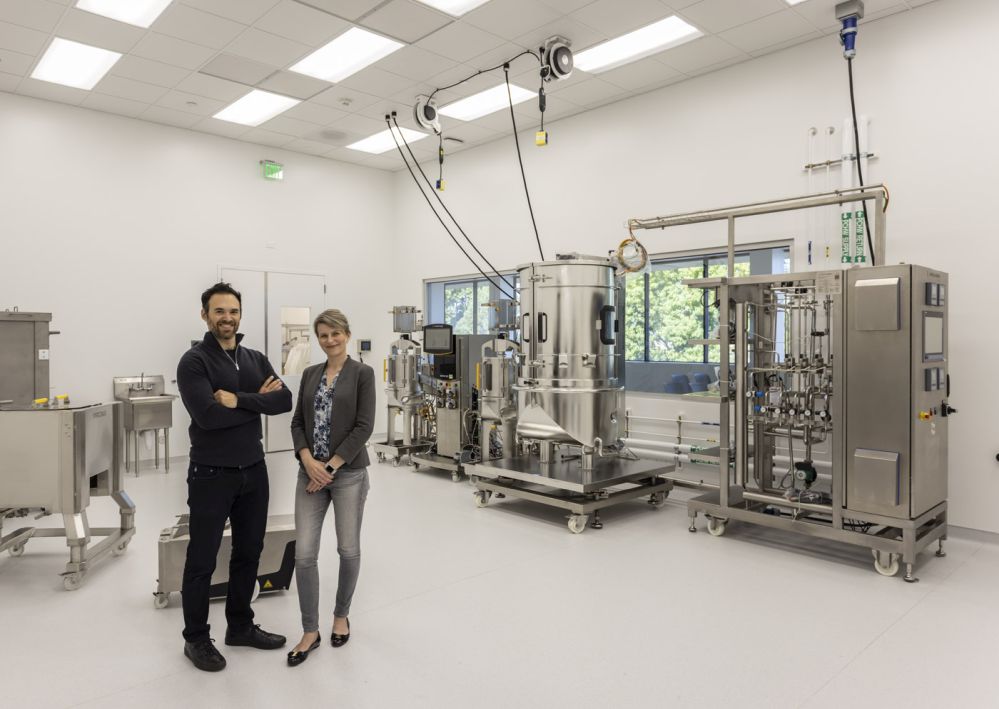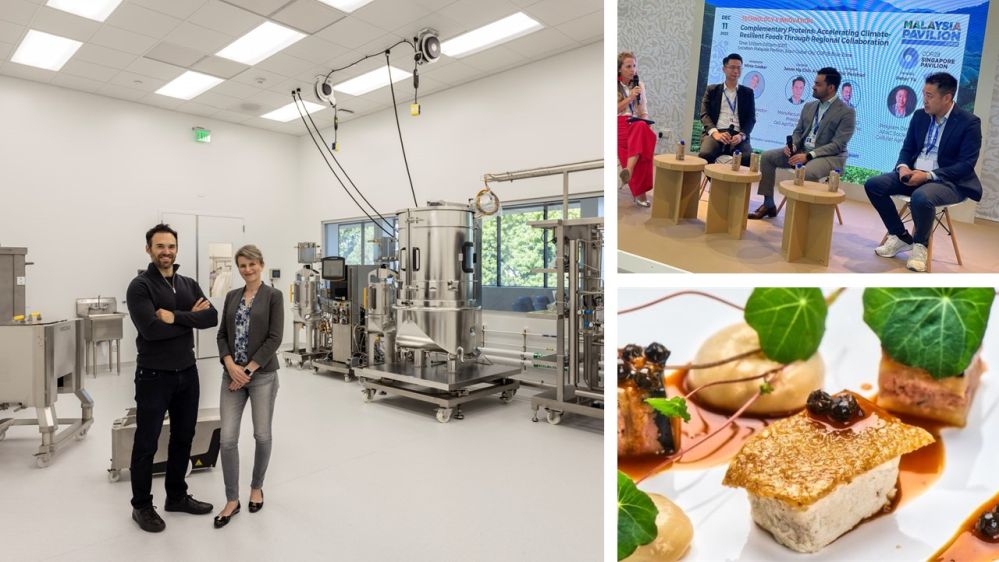It’s been a busy week in cultivated meat, with Singapore-based UMAMI Bioworks and Malaysia-based Cell AgriTech announcing a large-scale facility in Malaysia; SCiFi Foods opening a pilot plant in San Leandro, California; and Vow receiving a preliminary nod from regulators in Australia and New Zealand for its cell-cultured quail.
Malaysia: UMAMI Bioworks and Cell AgriTech to open commercial-scale plant in Q1, 2025
The UMAMI/Cell AgriTech facility in the Kulim Hi-Tech Park in Malaysia, the first phase of which is scheduled to open in Q1 2025, will contain up to five full-scale production lines when completed. The site, which will be powered in part by solar energy, will span 96,000 square feet with a projected annual output of 3,000-plus tons (6 million pounds).
To put this in perspective, UPSIDE Foods’ planned site near Chicago will have an initial capacity of millions of pounds and the potential to expand to over 30million pounds, while Believer Meats’ plant in North Carolina will have a capacity of at least 22 million pounds once fully operational.
Under a deal announced at COP28, UMAMI Bioworks will develop the core production technologies, including cell lines, growth media, and “modular, automated production lines,” while Cell AgriTech will focus on improving yields and operational efficiencies, said the Good Food Institute Asia Pacific (which hosted the panel session at COP28 at which the announcement was made).
We’ll be catching up with UMAMI Bioworks founder and CEO Mihir Pershad in the new year for the lowdown on the new site, so stay tuned…

Australia: Vow secures preliminary regulatory green light from FSANZ
Australian startup Vow, meanwhile, received positive news from Food Standards Australia New Zealand (FSANZ) this week, with the regulator making an initial assessment that Vow’s cell-cultured Japanese quail made with embryonic fibroblasts does not present safety concerns. The novel food assessment is now open for public comment with a deadline of Feb 5, 2024.
Vow’s cells were originally isolated from a Japanese quail embryo and immortalized such that they can proliferate indefinitely under appropriate culture conditions.
“The assessment concluded that the cell line is genetically stable and any microbiological risks associated with cell line sourcing are very low,” concluded FSANZ. “Given the aseptic nature of cell proliferation/biomass production stages, the microbiological risk associated with cells at the point of harvest was very low.”
The regulator added: “There were no toxicological concerns associated with the cell media or inputs used in the production process at the estimated consumption levels. No nutritional safety concerns were identified from the consumption of the harvested cells containing the levels of nutrients provided in the application. The available information indicated the harvested cells are unlikely to pose a food allergenicity concern for the general population.”
In a section of the assessment summarizing recent consumer research, FSANZ claimed that, “When provided with a neutral description of cell-cultured meat, consumers consistently perceived it as less healthy and/or nutritious than conventional meat, regardless of the terminology employed,” although it noted that consumer perceptions “appear to be highly malleable.”
Vow — which bagged $49.2m in a series A round last year — will share more about its progress in the new year but cofounder and CEO George Peppou told AgFunderNews he had been “deeply impressed with the comprehensiveness and rigor” of FSANZ’s approach.
He added: “As part of the public consultation process, FSANZ has posted hundreds of pages of data and analysis, including Vow’s lengthy application, so anyone with questions can find detailed information in those documents.”

USA: SCiFi Foods opens pilot facility, FDA/USDA application ‘imminent’
Finally, in the US, SCiFi Foods has opened a pilot plant in San Leandro, California, cofounder and CEO Joshua March told AgFunderNews. “It’s a small-scale production facility designed to go through the FDA/USDA approval process to produce commercial products.
“It goes up to a 500-liter production bioreactor, which means we’ll be able to produce meaningful amounts—serving thousands of people every month—as we use a blended approach (combining a small amount of cell-cultured meat with plant-based meat to create hybrid products).”
A regulatory submission to US authorities is “imminent,” said March, who has raised $40 million to date from backers including Andreesseen Horowitz and Valor Siren Ventures.
“Our goal is to be able to start commercial sales in Q1, 2025,” added March, who is using CRISPR gene editing techniques to immortalize bovine cells and get them to grow in single cell suspension [without needing to adhere to microcarriers].
“We are also animal component free throughout the full process with growth rates and performance that are equal to or better than with [fetal bovine] serum.”
He added: “Cell line engineering is the key unlock. What drives down the cost of cultivated meat? You get economies of scale by being able to do things at larger scale, and obviously the cost of the media has a big impact. But those two things alone aren’t enough. Cell line engineering allows us to develop cell lines that can be scaled up robustly with faster growth rates at higher cell densities that can grow in cheaper and cheaper media.”
According to March: “There’s only a handful of companies in the space that have actually demonstrated that they can develop cell lines with KPIs necessary to scale. As far as I’m aware, we’re still the only company in who’s developed beef cell lines that can grow in single cell suspension and do that 100% serum-free.”






